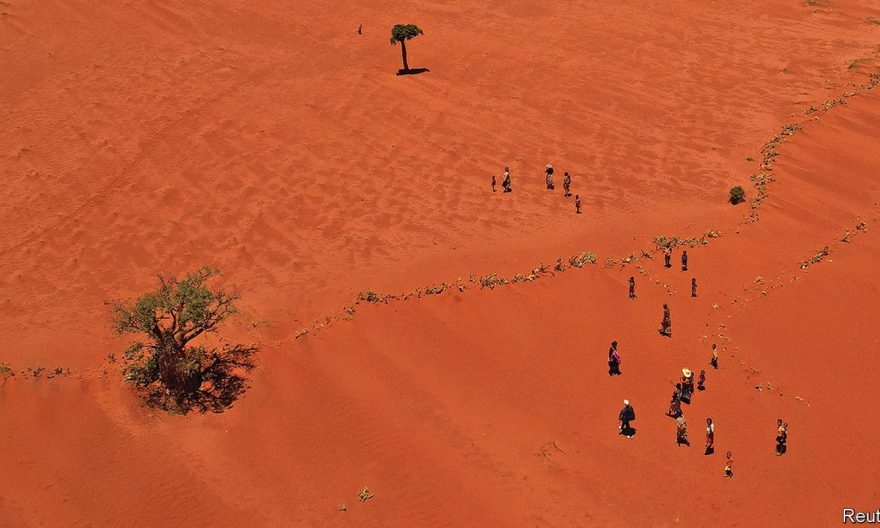
BY MADHAV SHRESTHA
Climate diplomacy will not be limited to 2050. So a well built-in mechanism infused by hard-earned knowledge, expertise and exposure needs to be put in place, so that Nepal can marshal climate diplomacy in a well-mannered way to gain both sympathy and support from the global community to rid itself from climate change-induced sufferings
If there is any development detrimental to global humanity, it is the recurring climate change, which threatens to derail and destroy the global ecosystem. Evidently, climate change has brought over rain, floods, landslides, forest-fires, disasters, hurricanes and cyclones sometimes, and at other times, aridity and drought causing massive snow meltdown.
Without a doubt, climate change is caused by rapid industrialisation and ever growing use of fossil fuels, first in the highly industrialised West and then in Asia, especially in its east.
Climate change is, no doubt, man-made, propelled by both state and non-state actors. Unfortunately, man has not yet been able to tackle this grave issue despite it being the handiwork of man himself.
It is evident that the developed world has adequately enjoyed the windfalls.
People of the victimised countries have been punished for no fault of their own. Irreparable loss has been incurred with no conscientious judgment for climate justice.
Everyone is aware that justice delayed is justice denied. Hence, the quicker action is taken, the better it will be for humanity.
Humanitarian consideration must be up for those who have suffered, not for their doings.
For example, Nepal’s negative contribution is too tiny. It is only around 0.027 percent of total global emissions. But Nepal is now ranked fourth in terms of vulnerability to climate change, whereas big countries like China, the US and India rank 1st, 2nd and 3rd in negative contribution.
Certainly, Nepal is locked by climate change pollutants.
This serious concern has to be addressed by the leadership of the great polluters at international conferences and other events with a softer heart for those who deserve justice with the required help and cooperation extended. That will not be just a consideration but an obligation.
Nepal reformulated its climate policy in 2019, after repealing the older one in order to make it more compatible to the changing context. Actions needed to update Naturally Determined Contributions (NDCs) were taken and submitted in 2016 as a Party to the Paris Agreement and acceptance of the Doha Agreement to the Kyoto Protocol.
The world knows it well that Nepal is wedged into a corner due to the impact of climate change, which it cannot tackle with its own efforts. It lacks financial resources and has no access to strategic technologies to combat threats posed by climate change.
Technical knowledge and experience are also not sufficiently at its disposal.
The bureaucracy is not quite adept at handling the issue. Efficient management is in a murkier situation.
Energy is also lacking to meet the challenges facing the country.
With all those deficiencies, how Nepal can implement various necessary terms and conditions. Nepal will lag far behind in attaining the Agenda 20 related to poverty reduction, food security, health, education and a host of others.
Crucially concerned is the case of Goal No.13 of Agenda 30, which aims to “take urgent action to combat climate change and its impact; integrate climate change measures into national policies, strategies and planning; and improve education, awareness-raising, and human and institutional capacity on climate change mitigation, adaptation, impact reduction and early warning.”
Climate change is not a home product of Nepal. It is a global concern, which could only be tackled by the common efforts of all the big powers working in tandem. Lopsided attempts will hardly meet the challenge.
To realise all efforts, there is an urgent need for effective diplomatic application to attain anything real and serviceable. Knowledgeable people better understand that diplomacy has normally been taken as a reactive discipline of the state action. While trouble shooting, crisis management will always be a major function of diplomatic practice. Hence, climate diplomacy must be creative and proactive if it is to succeed.
Climate diplomacy requires institutional reforms and more investment in resources and skills to navigate in the complex situation tossed by climate change. In the meantime, climate diplomacy needs more ownership across governments to render it into a concerted effort.
The application of diplomacy to climate change is crucial in embedding climate change in the decision-making process to shape and reframe the core national interest at home and influence deliberations abroad. Diplomacy should use all the tools at its disposal to bridge unjustified divide between national and international interests.
It should stimulate both strategic and tactical actions with diplomatic acumen infused by experience and exposure.
It is understandable that all countries suffer from capacity constraints.
However, they could be reduced through higher and better domestic investment, stronger alliances and with international support as well.
People in Nepal feel the absence of an effective structural initiative in applying climate diplomacy while the time to deal has come up. Make-shift attempts are made as the application of climate diplomacy approaches. That will not serve any long-term objective. In the absence of an established mechanism to apply climate diplomacy efficiently, Nepal’s participation in the COP-26 to be hosted by the United Kingdom in partnership with Italy in Glasgow of Scotland from October 31 to November 12 could be an interesting event to watch.
Climate diplomacy will not be limited to 2050, but will continue to proceed forward for ever. A well built-in mechanism infused by hard-earned knowledge, expertise and exposure needs to be put in place, so that Nepal can marshal climate diplomacy in a well-mannered way to get for Nepal both sympathy and support from the global community to rid itself from climate change-induced sufferings.
Creative initiative is all that is required to fight back its darker sides.
Source: The Himalayan Times.
THE ETHIOPIAN HERALD TUESDAY 29 NOVEMBER 2022




